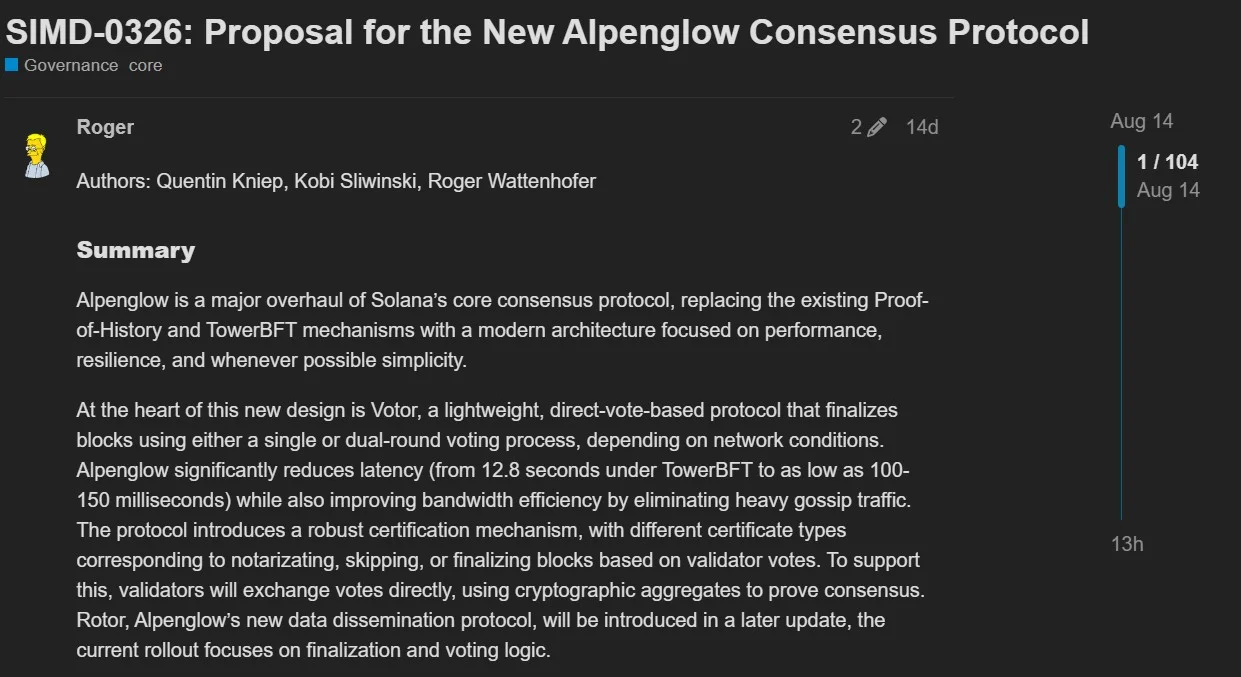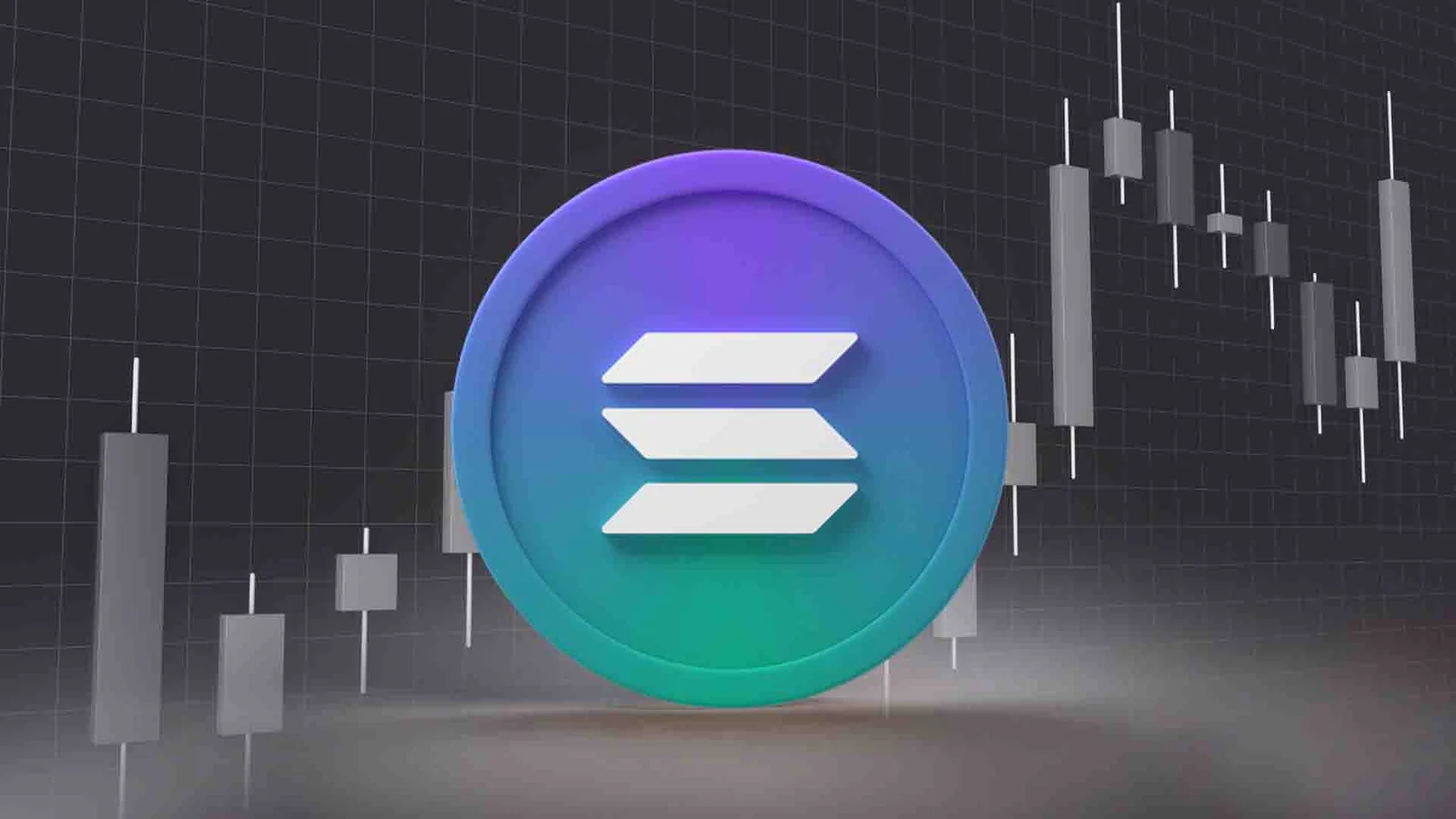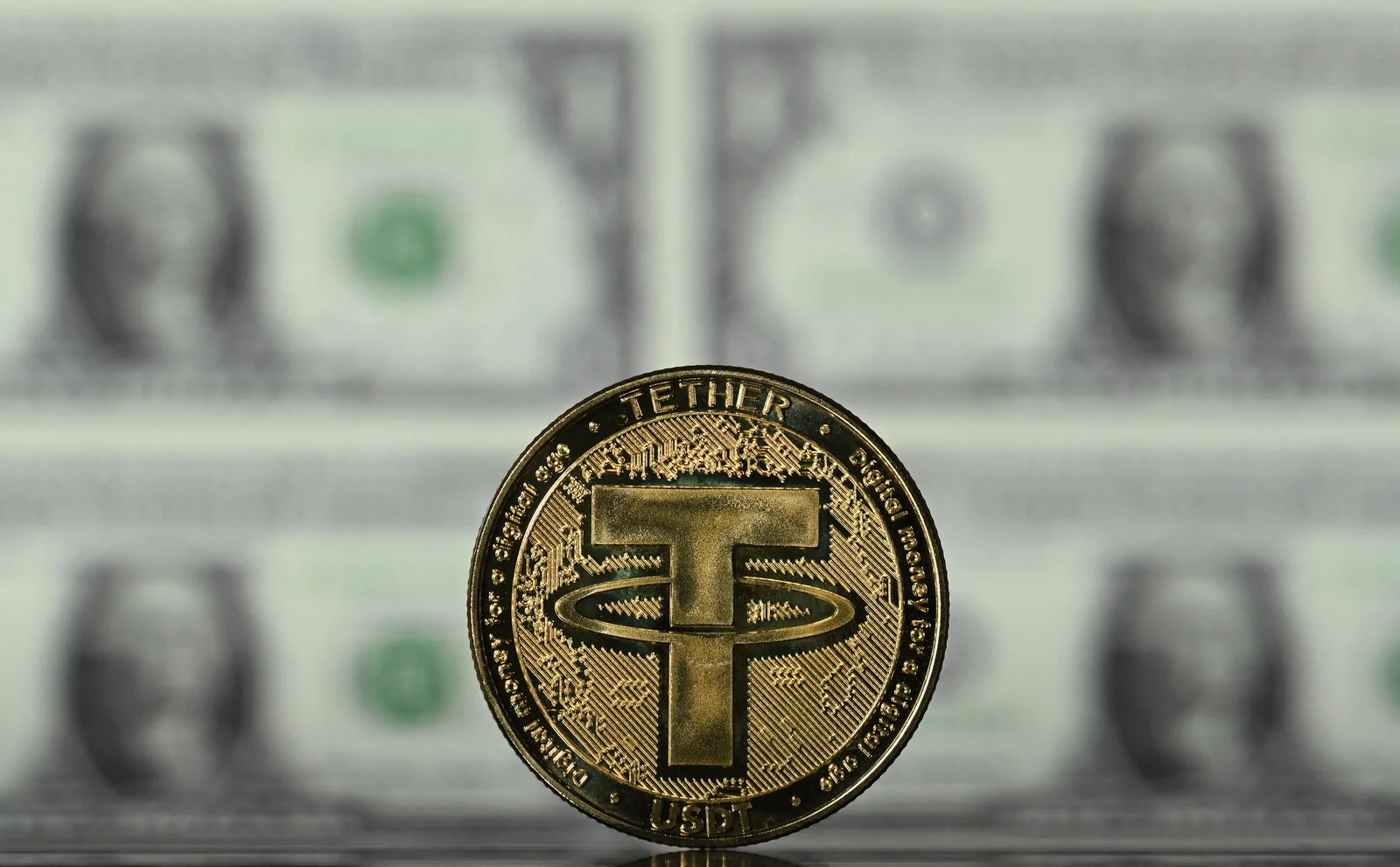The Solana ecosystem is taking a critical step toward high speed and scalability. Alpenglow, announced as the network's new consensus update, has been opened to community voting and has generated significant buzz in the crypto market. This proposal aims to surpass Solana's existing Proof-of-History (PoH) and TowerBFT mechanisms, offering a much faster, more secure, and more efficient platform.

Votor: From 12.8 seconds to 150 milliseconds
At the heart of the proposal are two new components: Votor and Rotor. Votor reduces block completion time from 12.8 seconds to just 150 milliseconds. This means users can receive near-instant transaction confirmations. This development is expected to be particularly revolutionary in speed-critical areas such as DeFi protocols, high-frequency trading, and blockchain-based games.
Rotor, on the other hand, optimizes data transfer on the network, reducing the number of "network hops" in communication between validators. This allows for more efficient bandwidth usage, significantly improving network performance. Rotor's full integration will occur at a later stage.
"20+20 Model" for Security and Resiliency
Alpenglow isn't just focused on speed; it also focuses on security and network resiliency. The "20+20 resiliency model," highlighted in the proposal, ensures the system will continue to operate even if 20% of the network consists of malicious validators and an additional 20% consists of offline or unresponsive validators. This approach provides significant assurance for decentralization and fair verification processes.
The proposal text states: "Alpenglow reduces consensus latency to a level comparable to Web2 applications, while simultaneously strengthening security, scalability, and economic fairness."
Community Voting and Market Impact
The Alpenglow update, codenamed SIMD 0326, requires two-thirds of the validators' approval to be accepted. According to official data, approximately 10% of validators have voted positively and 9.9% negatively. For Quorum to be established, the participation rate needs to exceed 33%.
This development has already resonated with the market. Solana's native token, SOL, gained 3% following the proposal, reaching $211. Trading volumes increased by 43%, and investor sentiment reached an 11-week high. Open interest in derivatives markets also increased, demonstrating growing interest from institutional and individual investors.
If the proposal is accepted, Solana will be one of the first major blockchain networks to offer block finality in milliseconds rather than seconds. This could create an infrastructure that rivals transaction-intensive Web2 applications like traditional finance and social media platforms.
However, some concerns have also been raised within the community. The reliability of Alpenglow in practice remains a matter of debate, especially given past network outages. Still, most analysts believe this move will make Solana more attractive for institutional adoption.




